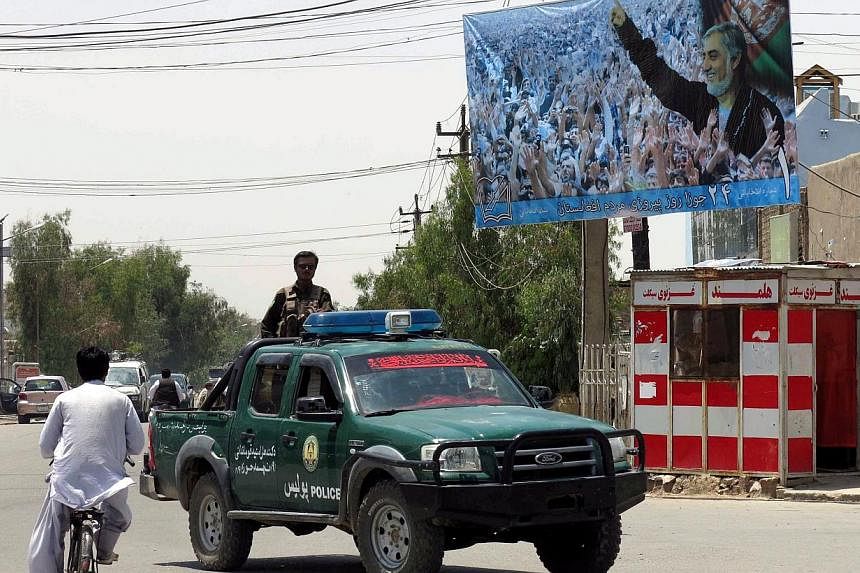KABUL (REUTERS) - Old-style power-broking dominated the first week of campaigning for the run-off round of Afghanistan's presidential election, with the two candidates vying for support from former warlords and powerful tribal leaders ahead of the June 14 vote.
In a departure from the first round, which saw elaborate rallies around the country by a crowded field of presidential hopefuls, the last men standing have hunkered down in Kabul to focus on building alliances.
Knowing little of what is being negotiated behind closed doors, many voters regard the process with cynical disdain. "There is a game of positioning ongoing. Corrupt personalities with very dark backgrounds are supporting candidates whose slogans are to fight against corruption," said Mohammad Asif Hottak, a doctor in Kabul.
As no candidate won more then 50 per cent of the votes in the first round, Abdullah Abdullah and Ashraf Ghani went into a run-off. Although Mr Ghani trailed Mr Abdullah by almost 14 percentage points in the initial vote, he stands to gain a portion of the ethnic Pashtun vote that splintered in the first round.
One alliance to emerge this week was between Abdullah, who is a former anti-Taleban Northern Alliance leader, and a brother of the outgoing president, Hamid Karzai.
Mr Abdullah's move to join hands with Mahmoud Karzai could win him votes in the Pashtun-dominated south, though the president's brother has fought allegations of corruption over the 2010 collapse of Kabul Bank. He denies any wrongdoing.
Mr Abdullah, who is widely supported by ethnic Tajiks, the country's second largest ethnic group, has also secured the backing of two influential Pashtuns who lost their bids for the presidency, Zalmay Rassoul and Gul Agha Sherzai.
Parliament has also tipped in favour of Abdullah, with around 150 members declaring their support for him this week. "It's a part of Afghan politics unfortunately, the current deal-making," said Afghanistan Analyst Network researcher, Qayoom Suroush. "You don't need to go to every each voter to convince them vote for you - you need to go to the elders, the tribal leaders and community leaders, and convince them to convince the community."
Mr Abdullah's rival, Mr Ghani, who is an ethnic Pashtun and former World Bank economist, for his part this week expanded his network of support with other communities.
He has won the backing of Ahmad Zia Massoud, an influential Tajik leader and former vice-president, who could help swing votes away from Abdullah. Ghani has since promised Massoud a new directorate in the government if he comes to power.
More pacts are likely to be forged as the run-off nears.
Among those likely to be wooed is former Hizb-i-Islami militant group leader Qutbuddin Hilal, who has not yet decided which way to lean.
Another power broker expected to announce his allegiance soon is Abdul Rab Rassoul Sayyaf, a former Islamist warlord who is reputed to have invited the late al Qaeda leader Osama Bin Laden to Afghanistan. He won 7 per cent of the first-round vote.

